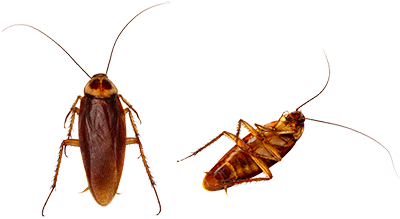 Surprisingly, cockroaches are steering away from sugary-coated traps designed to kill them. The phenomenon has been subject to much scientific interest with many experts asking why they avoid traps if they are coated in glucose-a tempting treat for cockroaches.
Surprisingly, cockroaches are steering away from sugary-coated traps designed to kill them. The phenomenon has been subject to much scientific interest with many experts asking why they avoid traps if they are coated in glucose-a tempting treat for cockroaches.
A study published in Science.Time reveals why.
Cockroaches determine whether or not food is safe by using their sensory systems. However, these sensory systems are able to quickly adapt to environmental changes.
How they are able to detect the presence of poison in food that was once considered to be “safe” according to their sensory systems is still a mystery.
Researchers at North Carolina State University looked at a species of cockroaches that have adapted and avoided traps coated in sugar; they were able to determine the mechanism of this change. Cockroaches have tiny little hair-like sensors on their mouths which they use to “taste” food, activating sensor gustatory receptor neurons, or GRNs. Certain GRNs activate in the presence of food that is sugar, which makes them feed as opposed to GRNs that activate in the presence of food that is bitter, making them avoid the food.
The research, which started in the mid-1980’s, found that German cockroaches given baits incorporating a stimulant (glucose) and a deterrent (insecticide) evolved a behavior change called “glucose aversion”. Cockroaches with “glucose aversion” avoided all man-made traps even though they were coated with glucose.
Using electrophysiological tests the scientist was able to analyze the responses of gustatory receptor neurons among normal and glucose averse cockroaches. They were surprised to find that when the German glucose averse cockroaches were exposed to sugar it actually stimulated their bitter GRN’s and suppressed the sugar GRN response, which prevented them from feeding.
This means that among glucose-averse German cockroaches glucose is processed as a deterrent which makes them avoid it completely. It is possible that the environmental adaption could have started millions of years ago, before humans were around, when they avoided some plants that are capable of producing toxic, sweet compounds.
All this means it is especially important to find efficient ways of controlling cockroach infestations in homes. Cockroach allergens can cause allergies and asthma attacks. The saliva and droppings contain allergen proteins known to trigger allergies and increase the severity of asthma symptoms, especially in children.
Find out how cellulose insulation in the attic and walls of homes can help deter insects.
